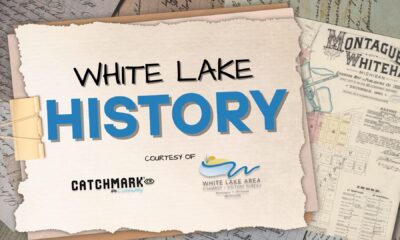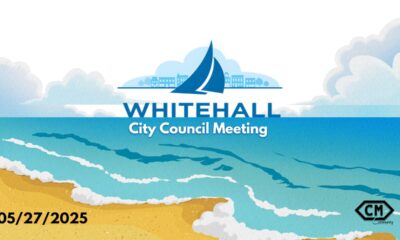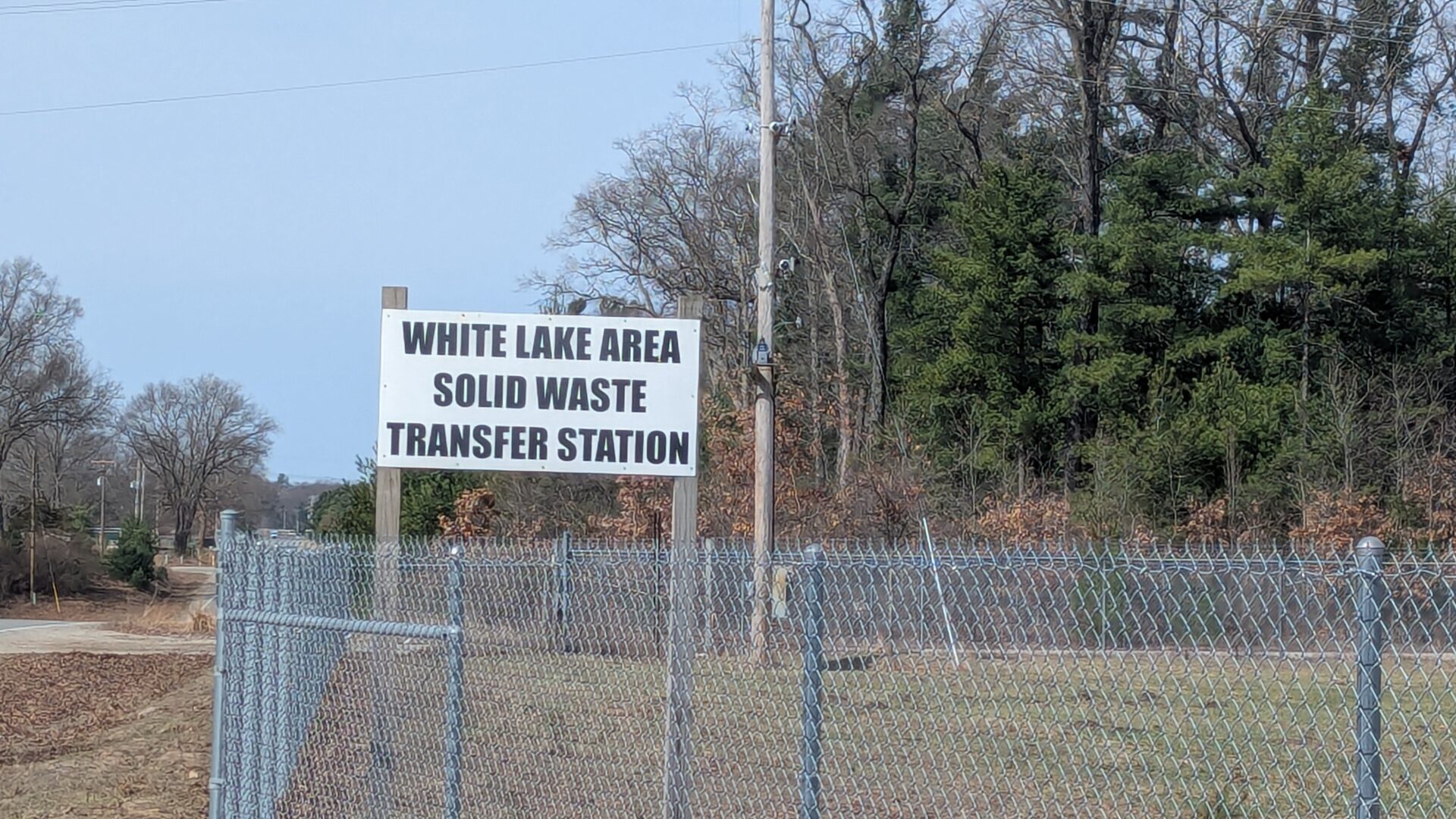
Proper waste disposal is crucial to keeping our communities clean, and the White Lake Area Transfer Station plays a vital role in that effort. Located at 2100 Holton Whitehall Rd., Whitehall, MI, the facility provides an essential service for local residents, offering waste disposal and recycling options that help keep roadsides, wooded areas, and backyards free of unwanted debris.
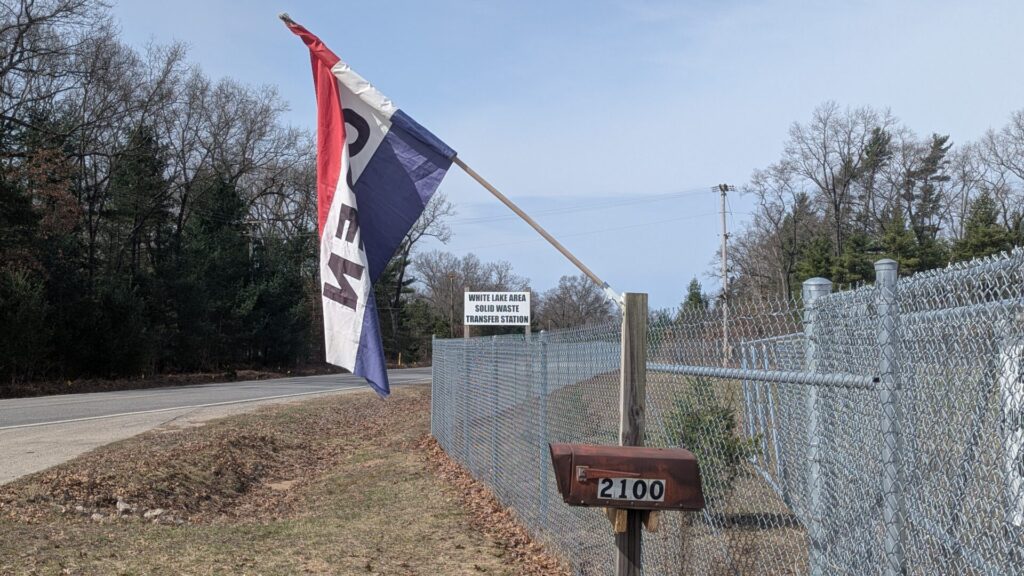
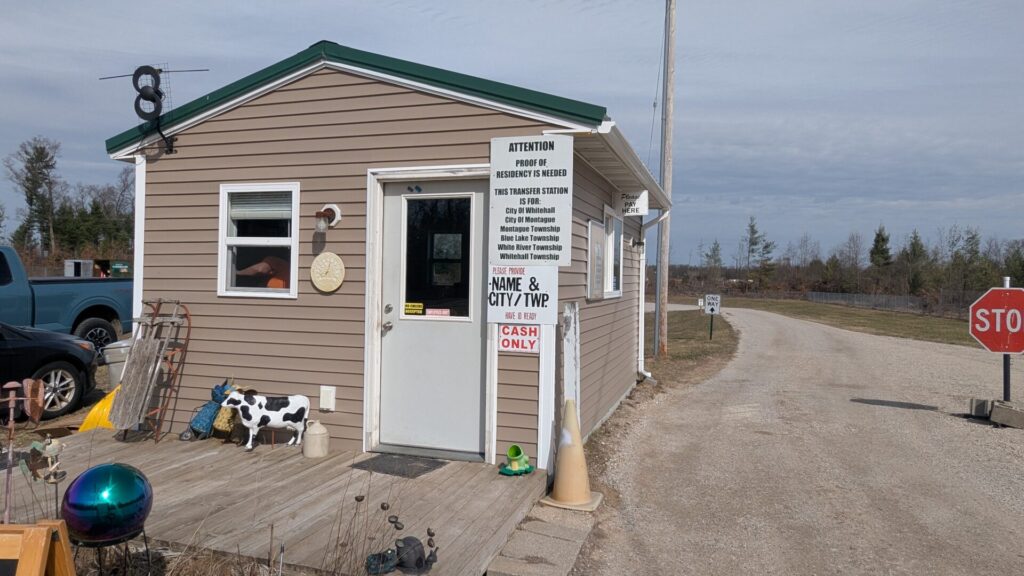
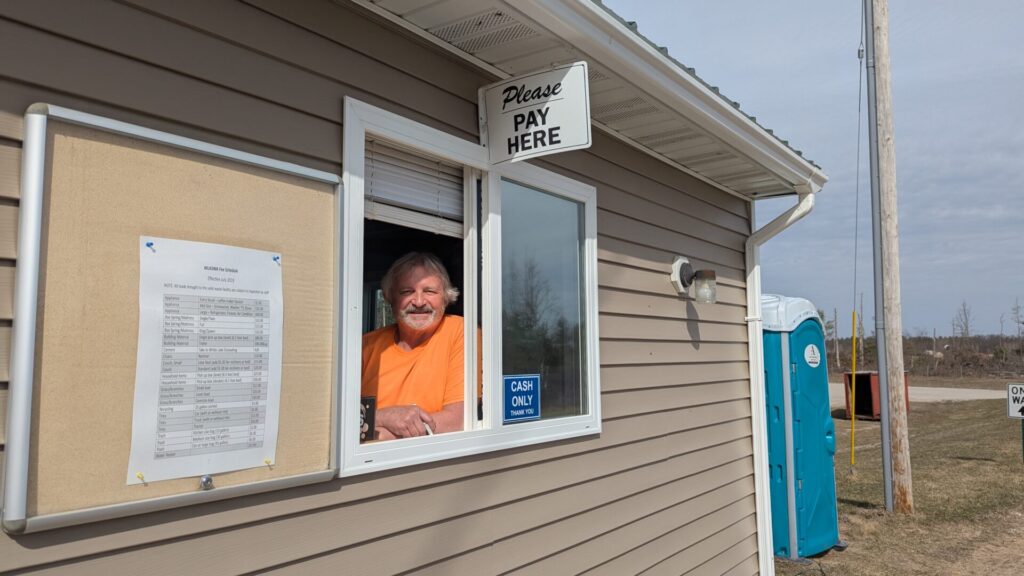
Serving Six Communities
The White Lake Area Transfer Station provides a vital waste disposal service for residents in:
- City of Montague
- Montague Township
- City of Whitehall
- Whitehall Township
- Blue Lake Township
- White River Township
To help offset disposal costs and encourage proper waste management, each municipality participates in Coupon Days—special designated days when residents can drop off up to $25 worth of trash for free. While the landfill waives its tipping fee on these days, operational expenses such as transportation, staffing, and maintenance still apply for the White Lake Area Transfer Station.
“We charge what we charge to cover our costs because there are a lot of costs to run this place,” said Tim Tibbitts, the facility’s Operations Manager.
2025 Coupon Days Schedule
- April 12 – City of Montague
- April 19 – Montague Township
- April 26 – Whitehall Township
- May 3 – White River Township
- May 10 – Blue Lake Township
- May 17 – City of Whitehall
Residents should check with their city or township offices for details on obtaining their coupon. This program helps prevent illegal dumping and encourages the proper disposal of household waste.
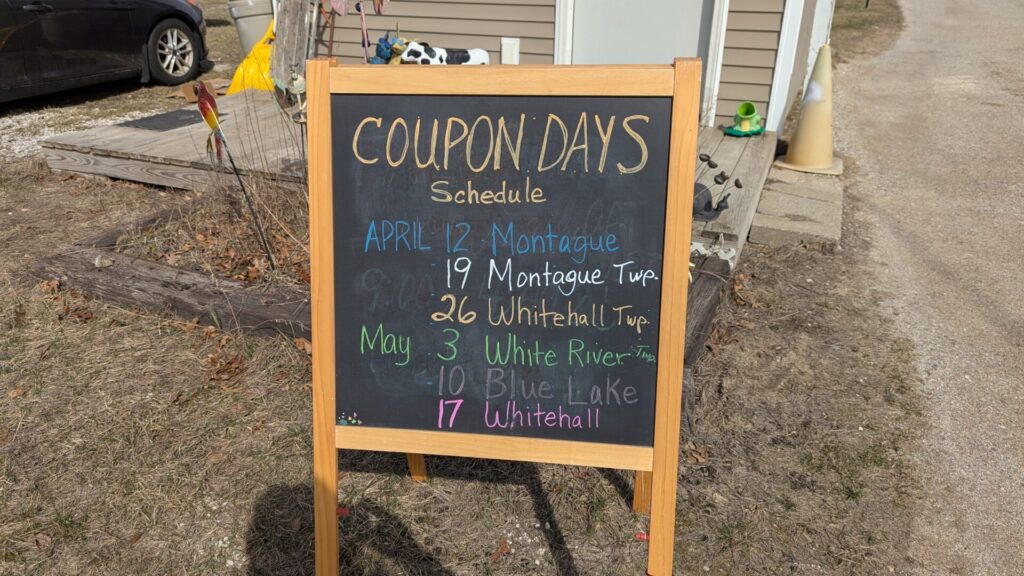
What You Can (and Can’t) Bring
The transfer station is not a landfill—everything brought in must be transported elsewhere. That means some materials cannot be accepted.
Accepted Materials:
- General household trash
- Mattresses
- Small renovation debris (from personal projects, not businesses)
- Recyclables (glass, plastic, paper, corrugated cardboard)
- Grass clippings and small brush (under four inches in diameter)
Not Accepted:
- Hazardous waste (paint, oil, chemicals)
- Leaves (many townships provide seasonal pickup services)
- Invasive plant species (to prevent spreading)
- Large commercial waste (roofing, demolition materials from contractors)
The station also sees its fair share of unusual items—from moose antlers to a full-sized wooden boat. One of the most commonly discarded items is toilets, which show up almost daily.
“Pretty much every day we get at least one toilet,” Tibbitts joked.
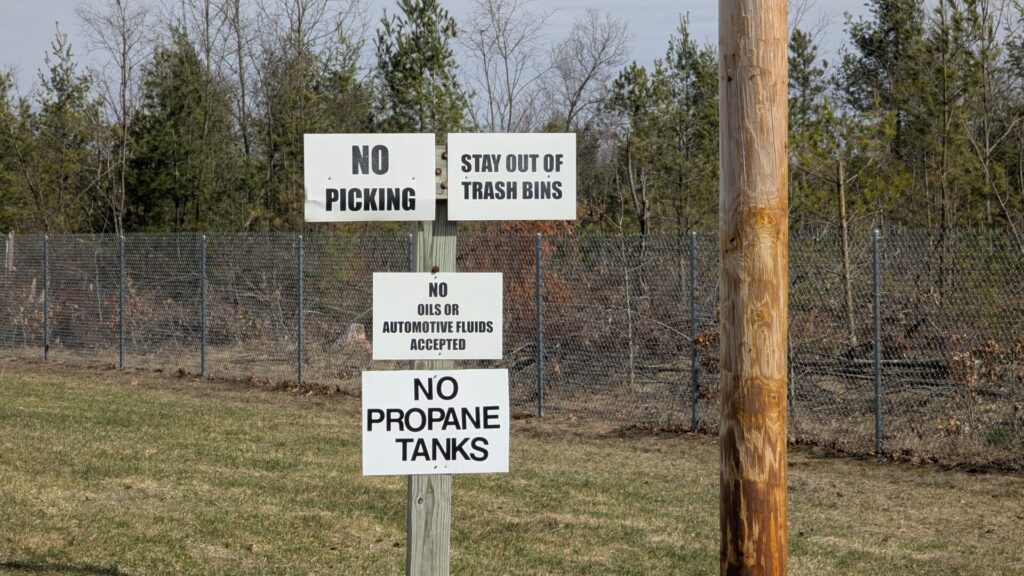
A Building Decorated With Leftovers
One of the most unique aspects of the White Lake Area Transfer Station is its decor—a collection of unusual, interesting, and sometimes valuable items that were once destined for the landfill. Over the years, staff members have set aside items that catch their eye, turning the station into a display of discarded treasures.
Among the saved items are vintage skis, a banjo, a wooden boat, and even deer horns. These pieces add character to the station while serving as a reminder that not everything belongs in the trash. The team also keeps an eye out for reusable parts and materials that could be of value to local pickers, ensuring that salvageable goods don’t go to waste.
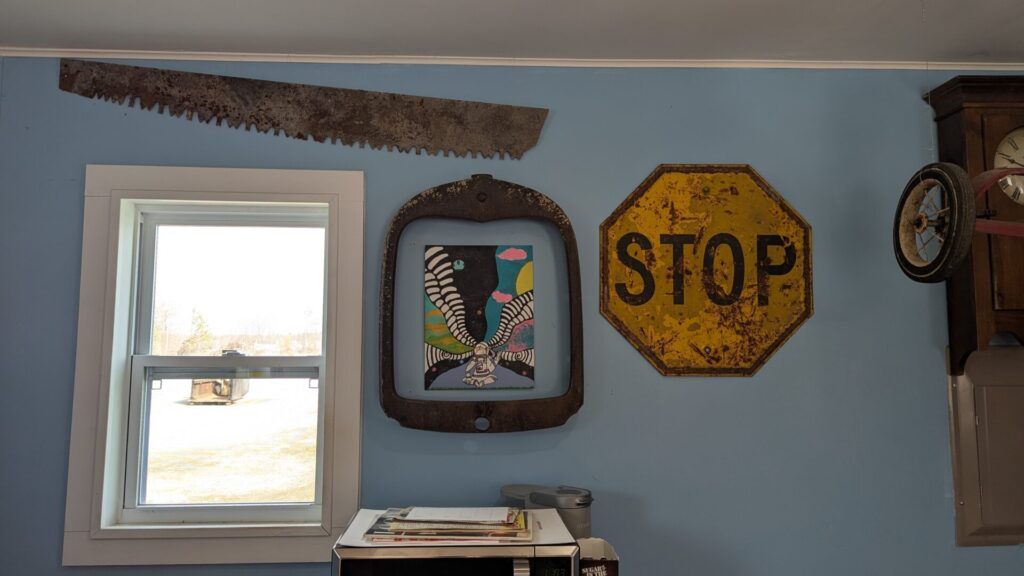
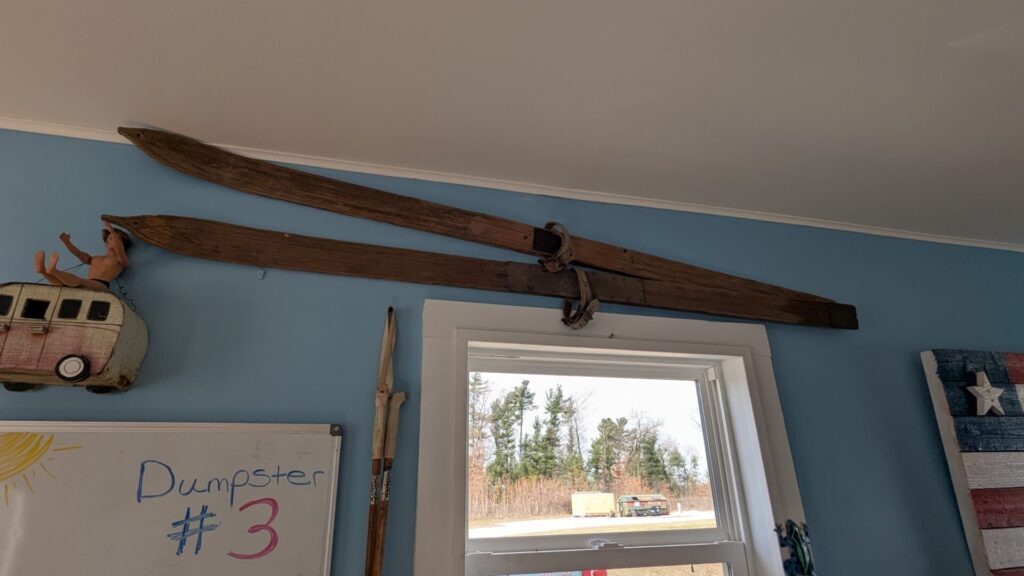
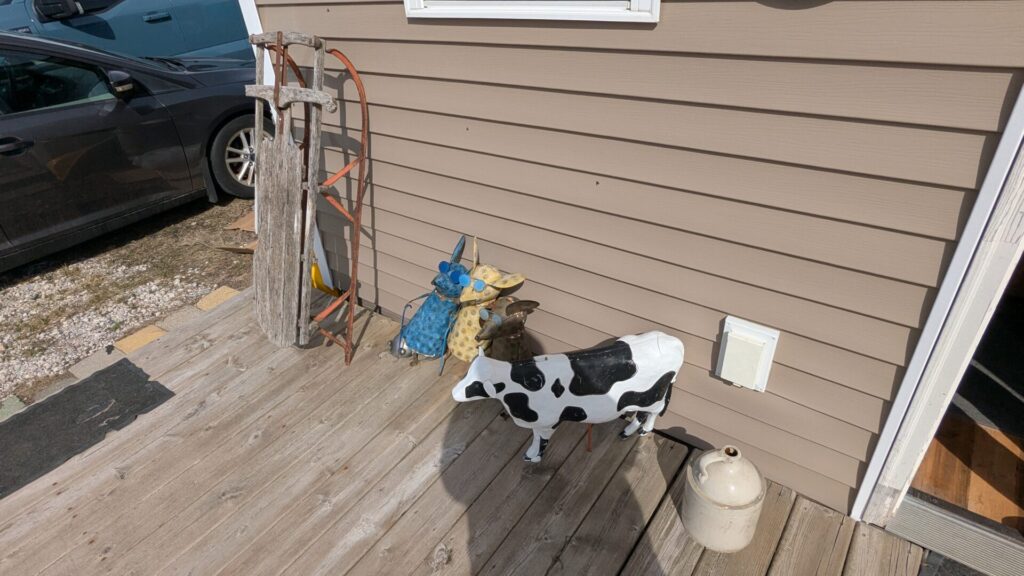
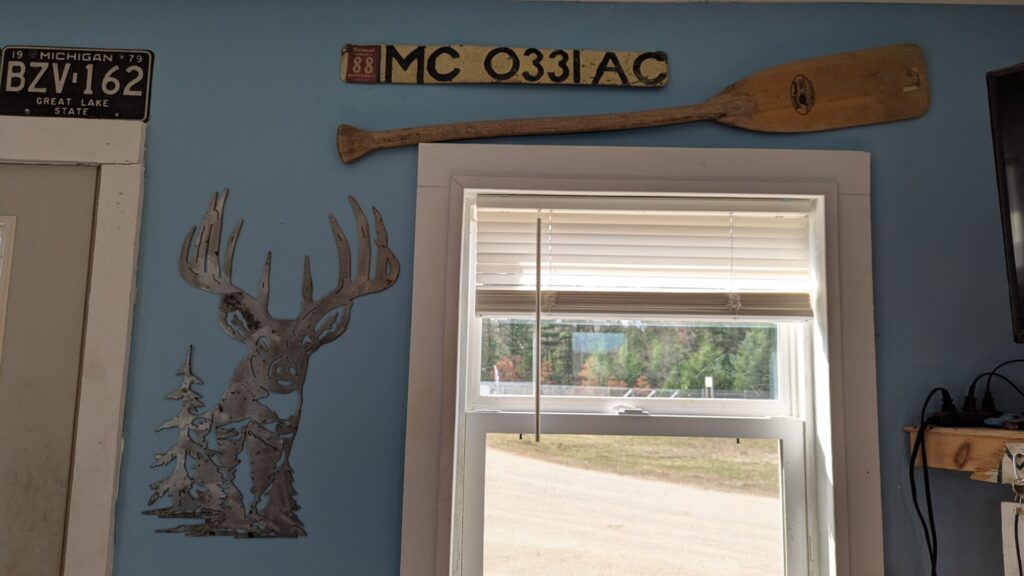
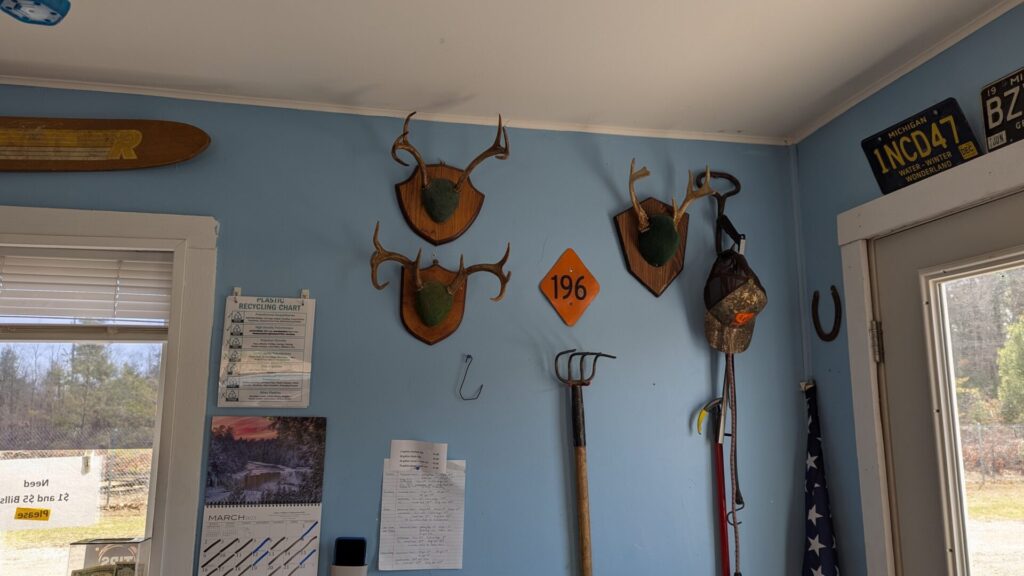
Efficiency & Environmental Responsibility
Efficiency is a key focus at the transfer station. Staff work diligently to maximize dumpster space, ensuring that transportation costs remain as low as possible. For example, instead of haphazardly tossing cardboard into recycling bins, they manually stack it to prevent wasted space.
Recyclables are also carefully sorted to avoid contamination. Corrugated cardboard must be separated from other materials, and food-contaminated items like pizza boxes cannot be included.
“If recyclables are contaminated, they won’t actually get recycled,” Tibbitts explained. “We take time to make sure what we collect is done the right way.”

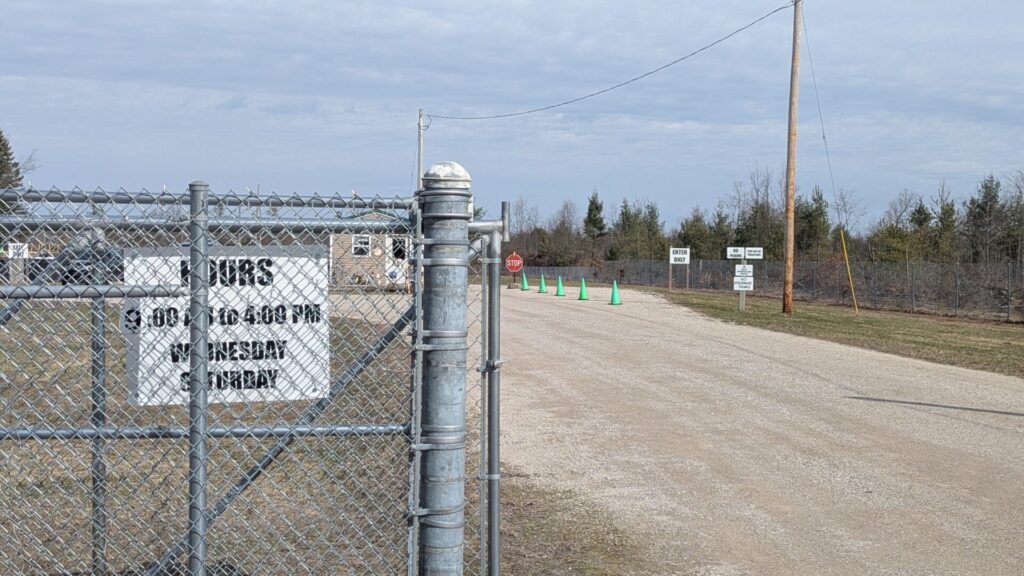
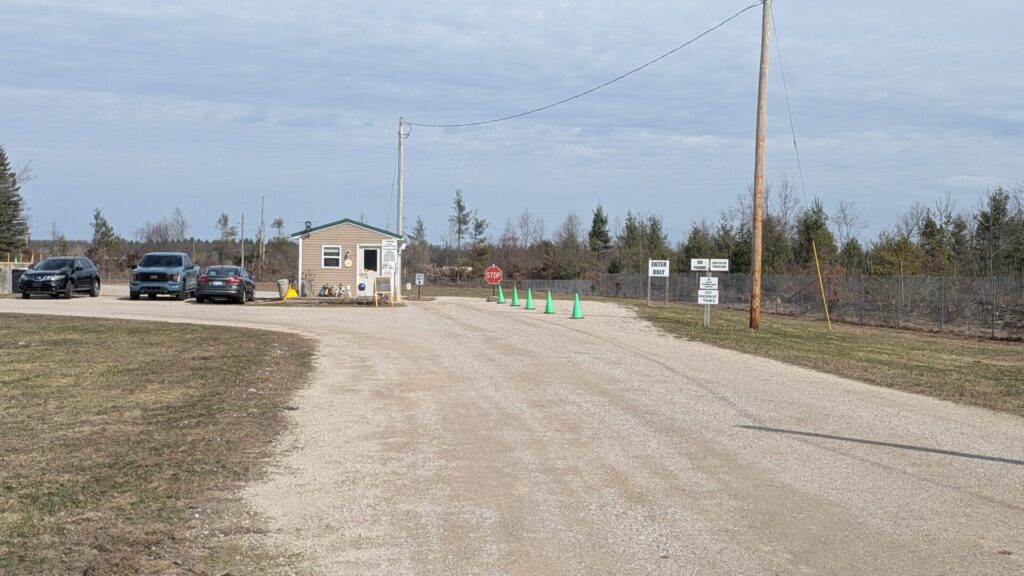
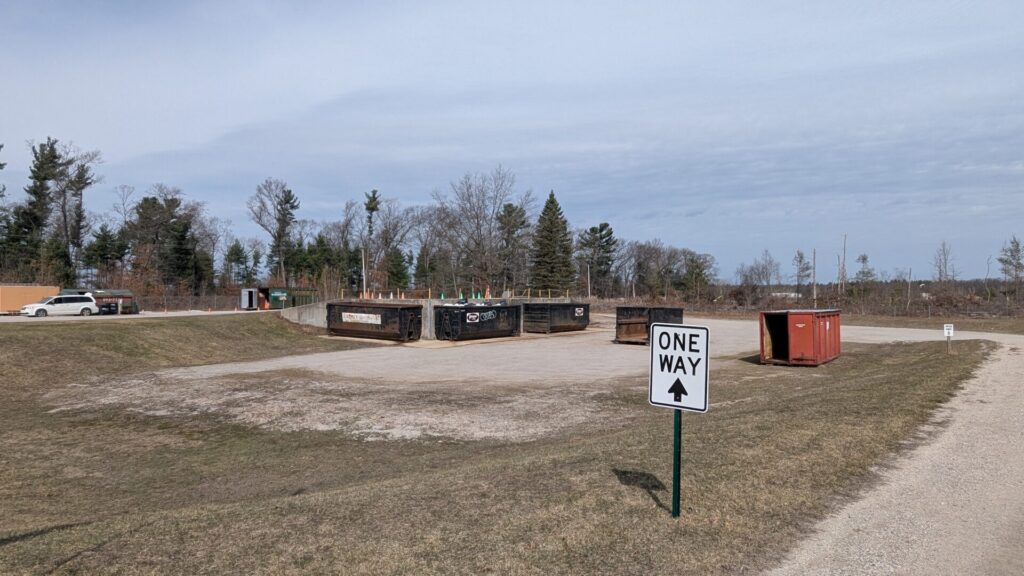
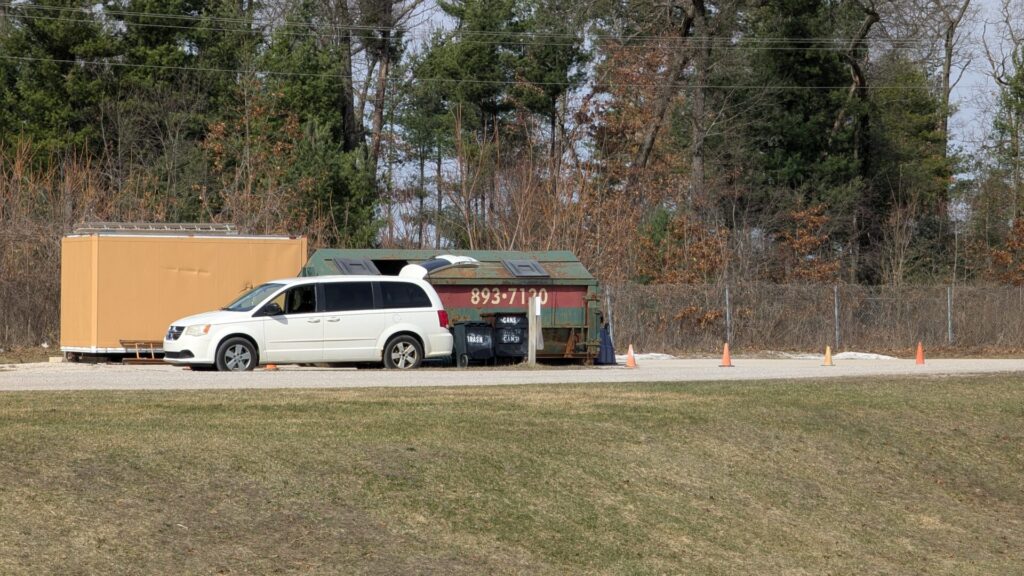
Separating Fact from Fiction
One common misconception is that the transfer station is part of the Muskegon County landfill—but it is not.
“We are all individually operated transfer stations,” Tibbitts clarified. “We have no affiliation with Holton, Cedar Creek, or Oceana.”
Another misunderstanding is that the service should be free, but the reality is that waste management costs money. Either residents pay directly at the station, or the expenses would be covered through higher taxes.
How to Contact the Transfer Station
The White Lake Area Transfer Station is open Wednesdays and Saturdays. Fall/Winter hours begin at the beginning of October and are 9 a.m. – 4 p.m. Spring/Summer hours begin April 2nd and are 8 a.m. – 4 p.m. Residents with questions can reach out via:
- Phone: Calls are answered only during business hours
- In-Person: Visit the station at 2100 Holton Whitehall Rd., Whitehall, MI during open hours
- Facebook: Messages are monitored regularly – Facebook Page
By using the transfer station properly, residents help maintain a cleaner, healthier community. Whether you’re dropping off household waste, recycling, or simply seeking more information, the team at the White Lake Area Transfer Station is there to help.
Amy Yonkman is the Product Lead for the CatchMark Community platform, bringing extensive experience in project management, WordPress administration, and digital content creation. She excels at coordinating projects, supporting cross-functional teams, and delivering engaging digital experiences. Amy is skilled in content strategy, workflow optimization, and multimedia editing across web and social platforms. With a strong background in task organization, technical writing, and customer service, she plays a key role in driving the growth and impact of CatchMark’s community-focused digital initiatives.
Must See
-


Community
/ 18 hours agoFishing the White Lake Region: A Late May 2025 Update
As we approach the end of May, anglers in the White Lake area, encompassing...
By Kara Raeth -


Community
/ 21 hours agoWhitehall, Montague Bands Win $10K for Leadership Training
The Whitehall and Montague High School bands have received an exciting $10,000 grant from...
By Amy Yonkman -


History
/ 2 days agoWhite Lake History – Activities of the Chamber of Commerce
Article from the Past This week’s history feature is plain and simple—a direct article...
By Owen Raeth




